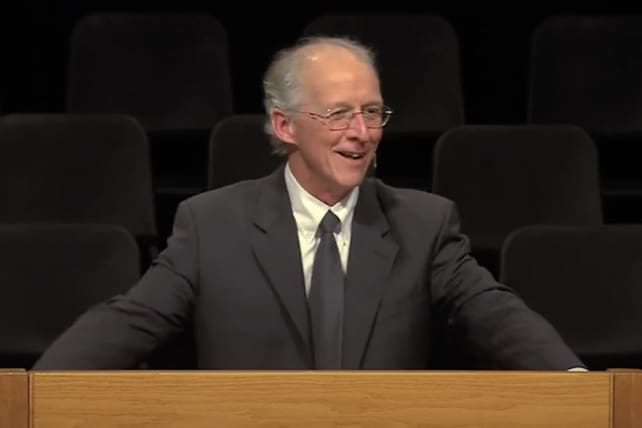What Christians know about Jesus and the gospel he espoused is found in the Bible. But can we be sure the Bible contains Christ’s true message? After all, for centuries, fallible men passed on the writings that we call the New Testament.
The first printed New Testament wasn’t produced until 1516. That means, for 1500 years the Scripture was passed down in handwritten copies. It’s not hard to believe that errors occurred along the way. Compounding the problem– we don’t have original manuscripts for any of the 27 books in the New Testament. We only have copies. Did the copiers get it right?
In this video, John Piper answers the question, “Isn’t the Bible full of errors?”
Piper believes there are fewer errors than you would imagine and those that remain have no impact on Christian doctrine.
To support his beliefs, Piper gives us a lesson in textual criticism, not just for the New Testament, but for all ancient works.
For example, the number of manuscripts available for other works from around the time of Christ are few:
Caesar’s Gallic Wars – 10
Livy’s Roman History – 20
Tacitus’ Histories and Annals – 2
Thucydides’ History – 8
Though the number of surviving manuscripts for those historical works are few, scholars are confident they are working with the actual words of the authors.
With the books of the New Testament, there are four types of manuscripts available to us: uncial, minuscule, papyrus and lectionary.
Here are the number of manuscripts that have survived in each of those forms:
Uncial – 322
Minuscule – 2907
Lectionary -2445
Papyrus – 127
The numbers are important. Piper says the more manuscripts that are available, the more evidence can be used to determine which passages are original and which are suspect.
Piper quoted F. F. Bruce who wrote about the reliability of the Bible in the 1940’s. Bruce pointed out that if the number of manuscripts increases the number of errors, it also increases the number of ways to verify the errors and determine the original text.
And Bruce came to this important conclusion– the variations that remain do not affect any biblical doctrine.
Piper comes to the same deduction: “We should be very thankful that God, in his providence, has made these thousands of manuscripts so abundant today that in the science of textual criticism, there is a high degree of certainty that we have the original wording and where we aren’t sure, it has no impact on the Christian faith.”
“It is reassuring at the end to reaffirm the accuracy of the Scripture,” Piper concluded, “this is the veritable word of God.”

